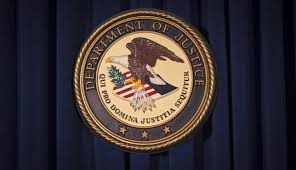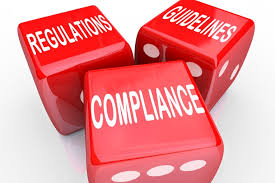Do Former Prosecutors Make Good CCOs?
 A number of companies have adopted the requirement that a new Chief Compliance Office come from the ranks of former federal prosecutors. I am not sure exactly why companies have adopted this requirement. Perhaps company leaders think this will give the company an advantage when dealing with the Justice Department or the SEC.
A number of companies have adopted the requirement that a new Chief Compliance Office come from the ranks of former federal prosecutors. I am not sure exactly why companies have adopted this requirement. Perhaps company leaders think this will give the company an advantage when dealing with the Justice Department or the SEC.
With full disclosure here, I admit my bias in favor of federal prosecutors. Having spent nearly twenty-five years as a federal prosecutor, I have the utmost respect for my professional colleagues.
There are obvious strengths that a prosecutor brings to the role of a Chief Compliance Officer. They have a strong commitment to ethical and legal compliance and the simple motto of “Doing the Right Thing.” As a result, they easily fit as a symbol of the company’s commitment to ensuring compliance with the law and the company’s code.
A federal prosecutor as CCO also has a unique perspective on how to investigate and root out potential misconduct. They are adept at reviewing facts, zeroing in on issues, and building investigations. As professional investigators, they can help a company to develop an efficient and reliable internal investigation program that will operate quickly and reliably.
Federal prosecutors have a keen regard for acting within the law and the code of conduct. They can become important messengers for the importance of compliance within the company.
If you have read my blog before, you know I place a lot of importance on the ability of a CCO to work in collaboration with colleagues. Federal prosecutors work closely with law enforcement and other colleagues to accomplish objectives. Without a team approach, a federal prosecutor will not be very successful. That characteristic also fits nicely with the CCO role in a company.
All of the above are strong attributes and reasons for justifying hiring of a prosecutor as a CCO. To be candid, however, there are other issues that have to be examined before selecting a prosecutor as a CCO.
Many federal prosecutors have experience in reviewing and evaluating a compliance program. That is usually not the focus of their investigations and prosecutions. Some have more experience than others.
This issue is an important consideration. The company has to focus on several important issues.
First, the company has to decide if the prosecutor has the creative ability and knowledge/expertise to design an effective ethics and compliance program. Prosecutors know what criminal activity looks like, and they know what a deficient compliance program looks like. But do they know what an effective ethics and compliance program looks like?
My friend Donna Boehme calls this “subject matter expertise.” In most cases, prosecutors do not have this expertise but the company expects they to develop it quickly, and in many cases prosecutors are able to do so.
 Second, the company has to decide if the prosecutor is the right messenger for the ethics and compliance program. In other words, can the prosecutor inspire the company officers and employees to embrace ethics and compliance? Here, the focus is not on the prosecutor’s ability to threaten or “scare” officers and employees that he/she will detect and investigate any hint of misconduct, but that the prosecutor will be able to carry the positive message of the ethics and compliance program, consistent with company values.
Second, the company has to decide if the prosecutor is the right messenger for the ethics and compliance program. In other words, can the prosecutor inspire the company officers and employees to embrace ethics and compliance? Here, the focus is not on the prosecutor’s ability to threaten or “scare” officers and employees that he/she will detect and investigate any hint of misconduct, but that the prosecutor will be able to carry the positive message of the ethics and compliance program, consistent with company values.
These two issues are significant and require careful consideration. Federal prosecutors bring a unique set of skills to the table and for many companies they are the right fit. The issues to be considered require a little more care and balance on the issues I have raised in this posting.
















Michael good comments although I don’t necessarily agree a federal prosecutor is the only way to handle compliance issues if the employees know that the CCO is a former federal prosecutor this only solidifies the policeman effect of the prosecutor and the Compliance program. My experience with companies with small staffs is to have a well trained Audit group control the Compliance review with oversight from the legal department so that when action is necessary legal will obtain the proper resources as necessary.
I like your blog. Thank you for challenging the notion. You write: But do they know what an effective ethics and compliance program looks like? Good question. More importantly: do they know how to design and implement an effective ethics and compliance program? That’s an altogether different skill…